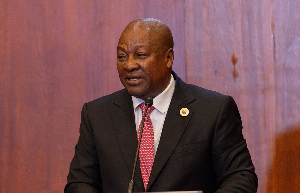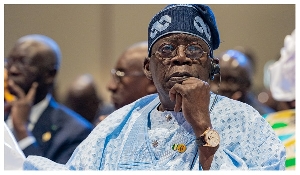The Ghana Shippers' Authority (GSA) has engaged key stakeholders and exporters in the Upper East Region as part of measures to address challenges in the export sector, to create a competitive advantage for local industries.
The forum, organised in Bolgatanga was on the theme, "Overcoming trade barriers to enhance exports in the Northern sector: the role of stakeholders".
It brought together representatives from the Ghana Export Promotion Authority (GEPA), Veterinary Services of the Department of Agriculture, the Ghana Police Services, Customs Division of the Ghana Revenue Authority and some exporters in the region.
Mrs Naa Densua Aryeetey, the Head of Shippers Services and Trade Facilitation, GSA, explained that the export value chain was a critical driver of every economy as it generated employment avenues, foreign exchange resulting in revenue mobilization, boosted the industrial sector as well as contributed to the Gross Domestic Product (GDP).
Mrs Aryeetey said Ghana did not benefit enough from the export supply chain due to its over-reliance on the export of raw materials, particularly Non-Traditional Exports (NTES) and the situation was worrisome to government.
"It must be noted and acknowledged that an appreciable surge in export trade volume was recorded in 2018. The total export trade for 2018 was 7.66 million metric tons, which represents an increase of 24.6 percent over the previous years".
"While these figures represent growth in the export trade, you will all agree that there is certainly more room for improvement and the Ghana Shippers' Authority would continue with its mandate of promoting and protecting the interest of shippers," she added.
Mrs Aryeetey explained that government as part of its industrialization agenda had taken steps to add value to the raw materials before exporting to increase foreign exchange, create employment and meet international standards.
She said government had introduced measures including the National Export Strategy, spearheaded by GEPA and the adoption of the Africa Continental Free Trade Area (AfCFTA) to open doors for exporters to trade with other African countries without barriers.
She urged the exporters to prepare themselves accordingly, to benefit from AfCFTA intervention and increase production and revenue mobilization.
The GSA would continue to negotiate to ensure that shippers were able to trade competitively on the international markets without any challenges, she assured.
She said the Authority had developed infrastructural projects including; warehouses in Tema, the recently inaugurated truck park at Hamile in the Upper West Region and would be constructing more at the Paga border and other areas, to ease congestion at the country's ports and address transport logistical challenges in both export and import value chain.
Exporters have over years expressed concern over high freight rates, poor handling of cargo by handlers, rejection of cargo due to poor labeling and packaging, poor road network, long transit time and infrastructure and multiple non-tariff barriers along the transport corridors among others as major challenges confronting competitiveness on the global market.
She said the projects therefore afforded major stakeholders the opportunity to address such concerns and enable exporters to trade freely without any challenges.
Business News of Sunday, 1 March 2020
Source: GNA













